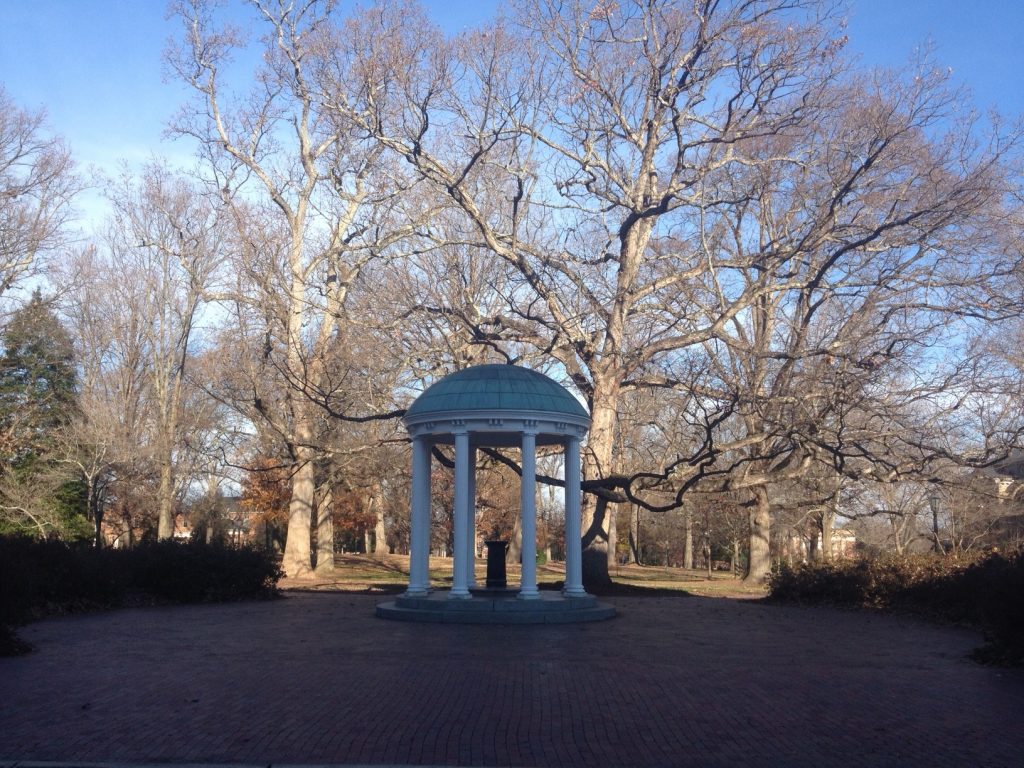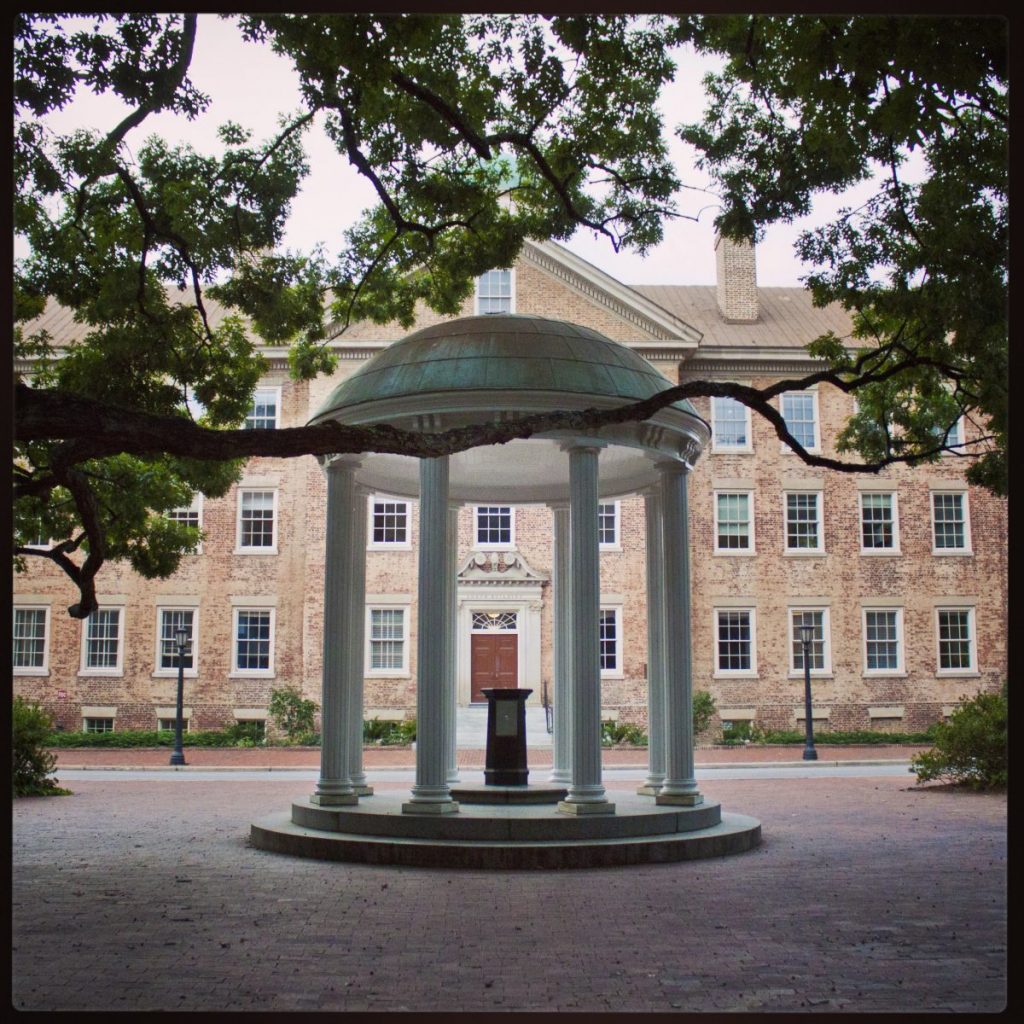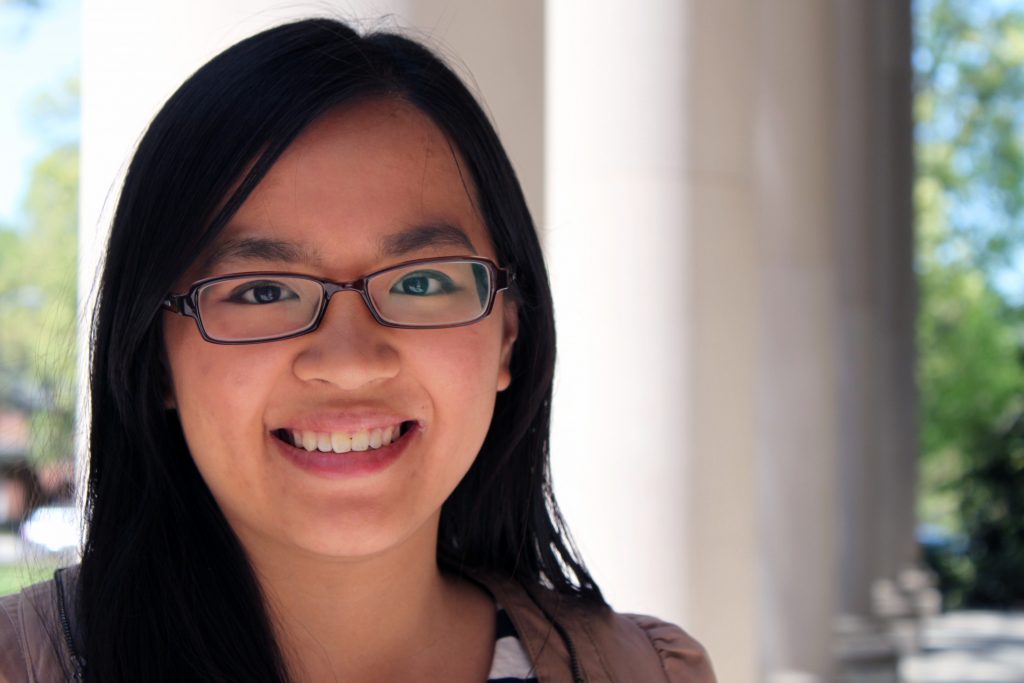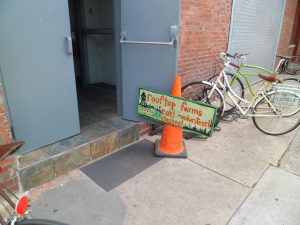
Surely Kate Grady must be in the wrong neighborhood. It was the hottest day she could ever remember. As the July sun baked the pavement of the Greenpoint neighborhood of Brooklyn, N.Y., she passed warehouse after warehouse. She was looking for a large patch of green here? Finally, she stumbled upon a huge, windowless building with a little door on the side and a sign that said, “Rooftop Garden Upstairs.”
“I climbed the stairs [three stories up], and all of a sudden I got up there and the view was amazing, with the Empire State Building in the background,” said Grady, a senior geography major from Raleigh. “They had chickens, and two or three bee hives. Everywhere you looked, they had flowering food plants with honeybees on them. People were leading volunteer activities, so I started putting pepper stakes in the ground.
“It was this awesome, ecological little island on top of a rooftop, right next to the East River.”
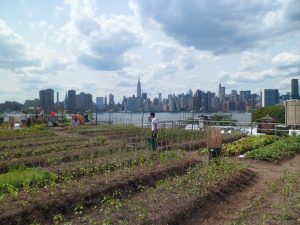
That visit to Eagle Street Farm, a 6,000-square-foot organic vegetable farm, was just one of many adventures Grady had in the summer of 2012. A Summer Undergraduate Research Fellowship (SURF) through the UNC Office for Undergraduate Research took her to Brooklyn to study beekeeping through the lens of “political ecology.” New York City legalized beekeeping (apiculture) in 2010.
As she wrote when presenting her work at the spring 2013 Celebration of Undergraduate Research, “Urban beekeeping not only provides certain residents of New York City with sustenance, but also serves as a vehicle through which they assert their right to the ecological and political space of the city.”
Grady has a growing interest in local food movements, and her grandfather has maintained backyard bee hives for years. While living in Brooklyn last summer, she interviewed urban beekeepers, sampled local honey at farmer’s markets, compared prices of store-bought and farm-raised honey, and even went on a hive check at Battery Park with the New York City Beekeeping Club.
She kept a blog, “Bees in Brooklyn,” to recount her experiences.
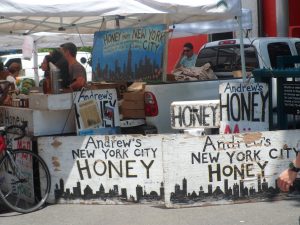
“I could see the beehives on the roof from the stall where their honey was being sold, in the middle of Manhattan,” she wrote about her visit with Andrew Cote, founder of the New York City Beekeepers Association at the Union Square Greenmarket.
Through her research, Grady found that urban apiculture is thriving in New York City. Most beekeepers are still selling honey as a part-time project, through farmer’s markets, web sites and small retail shops.
“It took a really big blow with Hurricane Sandy, but that just destroyed physical hives, not people’s enthusiasm for beekeeping,” she said.
But what about the taste? Is there a real difference between store-bought and local honey?
You bet there is, Grady said.
“Unequivocally the farm honey is better, because with a lot of honey that you buy in the store, those bees are pretty much fed high fructose corn syrup their whole lives,” she said. “The subtlety of what bees eat makes a difference in the taste, based on the plants that are found in the different neighborhoods.”
Ideas and snippets from Grady’s blog were used at meetings and in online venues by NYC beekeepers. French writers who are working on a book about beekeeping around the world are using some of her Brooklyn bee photographs.
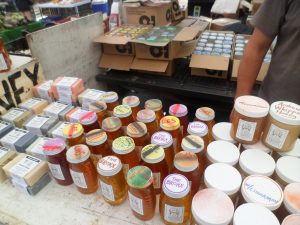
The SURF whetted her appetite for further research, not specifically on apiculture, but on something involving kids and urban agriculture. She also hopes to go to graduate school.
Winning the SURF was especially meaningful to Grady, a Carolina Covenant Scholar. Not only did she live by herself in the Big Apple; she took her first plane trip to get there.
“It would not have been possible for me to do this project without the SURF, where I could spend a whole summer doing research without worrying about working.
“It felt amazing to prove I could do something like this.”
[ Story by Kim Weaver Spurr ’88 ]


